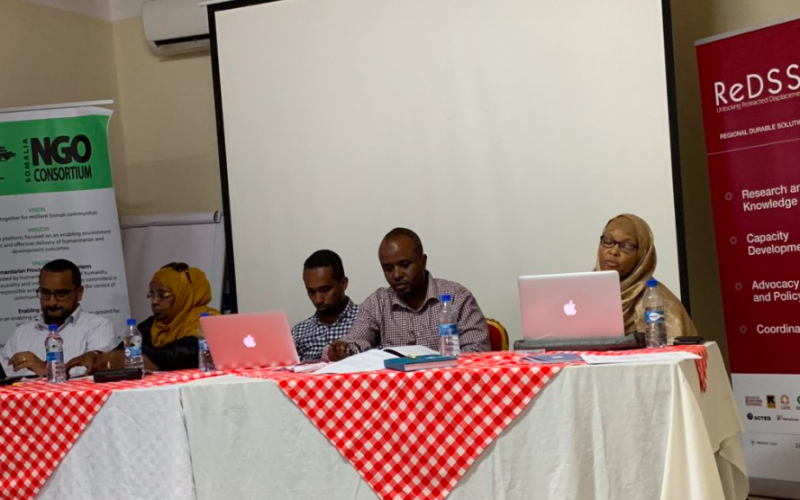The Regional Durable Solutions Secretariat (ReDSS) organised the first Somali Evidence week between 26-30 November 2018 to support knowledge sharing and research uptake to inform better durable solutions programming and policies based on evidence.
Plenaries were held across Somalia and the REF participated in the Mogadishu plenary. It brought together various stakeholders that work on durable solutions and displacement to better understand social changes and aspirations of displacement-affected communities in Somalia. REF presented findings from the Somalia displacement and return study and shared key themes relevant to achieving durable solutions.
The themes from our findings that particularly resonated with participants included challenging conventional labels and categories associated with displacement. Those labelled as IDPs face particular difficulties compounded by discrimination and social stigma. But there was also the recognition that there was a fluidity of movement that displaced people practised between urban centres and the rural homes they left to improve their income, a finding that was also captured by our study. Employment opportunities in general are scarce and it has been observed that host communities join IDP communities when they know aid and ration are going to be distributed to maximise their livelihood by having a hut in the IDP camps. This too speaks to one of our key findings that vulnerability should be needs driven, rather than labels or categories of particular people. Fellow panelists added that local infrastructure, good governance and social protection schemes also need to be invested in.

The Mogadishu plenary was attended by a high number of local university students and some of them are conducting innovative solutions to address problems in the IDP camps. One such student spoke about a group of them developing solar powered energy resources which they distributed in some of the local camps. But he was concerned that those resources aren’t being fairly distributed by the camp managers and raised questions about how those issues can be overcome. Abdirahman Sharif, one of the panellists and director of the Somali NGO consortium, acknowledged the existence of those issues along with a number of other issues specifically associated with camp managers. But he highlighted that the camp managers are playing the role of local government and until that role is taken over by local government services, it will be difficult to address problems associated with camp managers.
On the whole, there was a recurring theme that approaches towards resolving displacement issues need to move away from emergency and adopt a long term development approach. It also needs to be locally driven and Somali-led, since they’re best positioned to find solutions to their problems.
